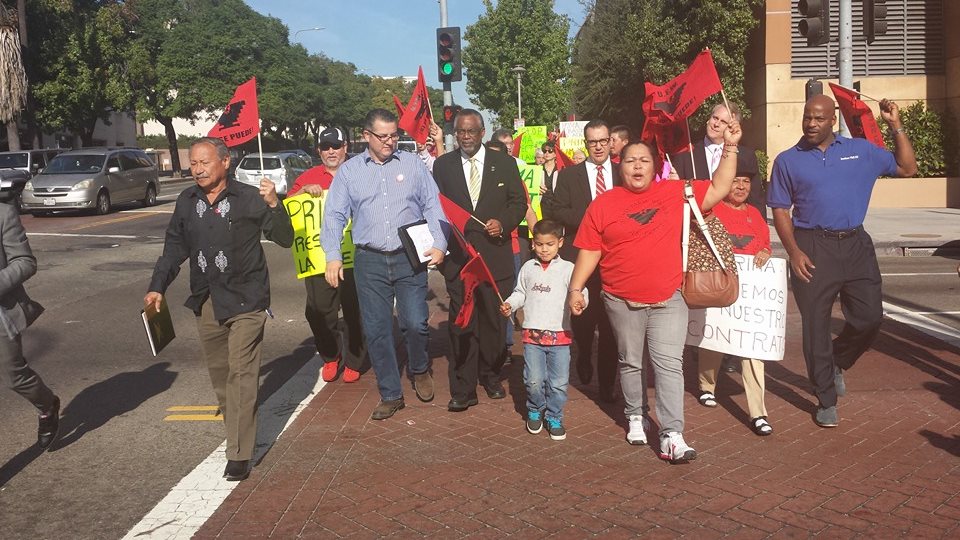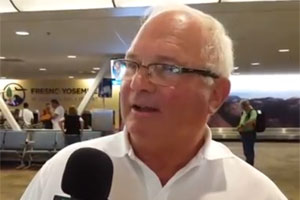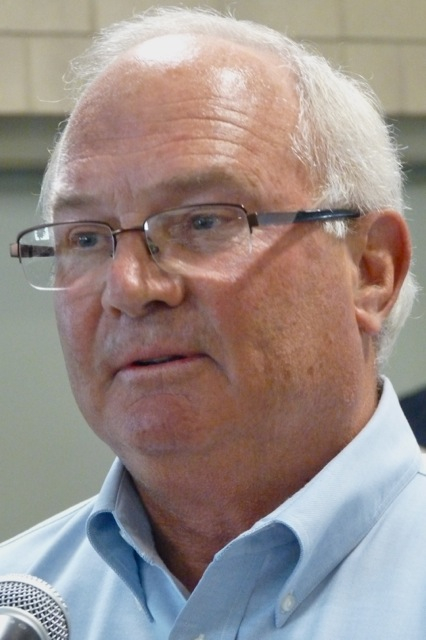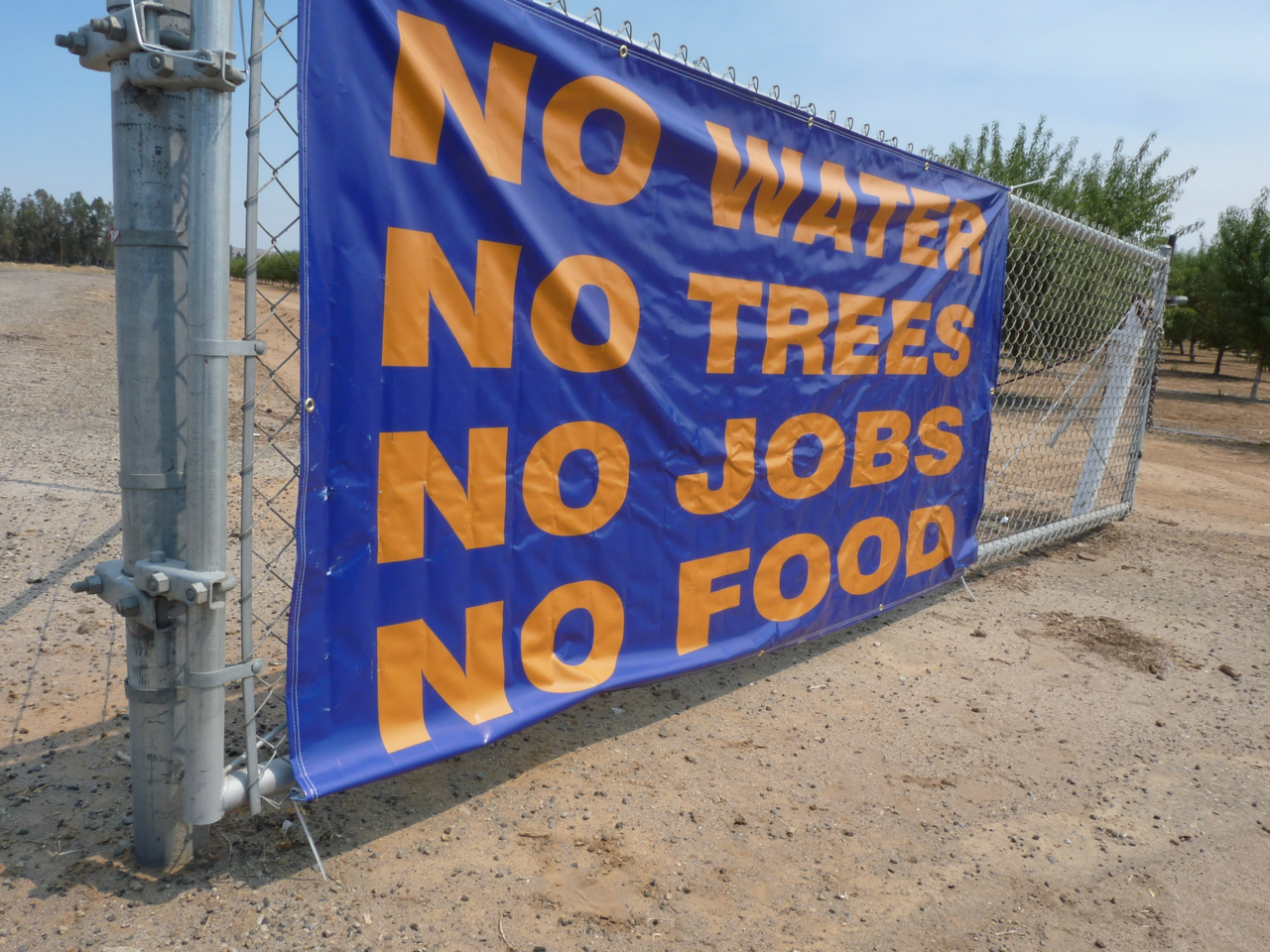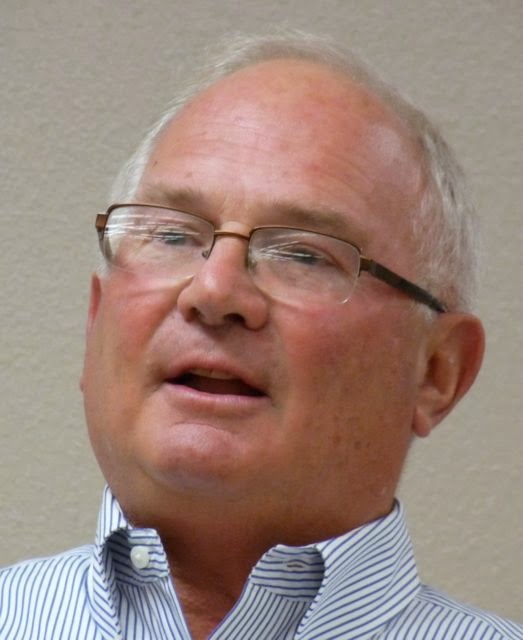Who Safeguards CA Farm Workers’ Rights? Part 4 – Motion to Disqualify ALRB Member Hall
ALRB Rejects Gerawan’s Motion to Disqualify Isadore Hall III
By Laurie Greene, Founding Editor
Our ongoing coverage of developments among United Farm Workers (UFW), Agricultural Labor Relations Board (ALRB), Gerawan Farming, Inc. and California farm workers chronicles the continuing, increasingly complex quagmire that masquerades as protecting California farm workers’ rights.
In short, after a series of legal volleys between Gerawan Farming and ALRB this past spring, the ALRB, again, refused to disqualify ALRB Member Isadore Hall III, former state senator (35th District, D-Compton), from participating in specific Gerawan legal cases on the basis of alleged pro-UFW bias.
In legal terms, ALRB issued an administrative order on June 9, 2017, denying Gerawan Farming, Inc.’s May 23, 2017 motion for reconsideration of request to disqualify Isadore Hall III from participating in specific case deliberations and decisions regarding Gerawan Farming, Inc. Likewise, ALRB also denied Gerawan’s request for a stay of the proceedings pending resolution of Mr. Hall’s participation.
BACKGROUND
Condensed Early History
The UFW was certified as the bargaining representative for Gerawan’s agricultural employees in July 1992, after a 1990 election. After one preliminary negotiating session in February 1995, the UFW disappeared for almost two decades, having never collected dues, negotiated for a wage increase, attempted to bargain for a contract or filed a single grievance on behalf of Gerawan employees during their abandonment, according to an April 17, 2017, Gerawan news release.
In 2013, the UFW invoked a controversial 2002 Mandatory Mediation and Conciliation (MMC) law that allows the ALRB to draft and impose a “contract” on the employer and employees against their will. UFW also proposed that Gerawan employees pay 3% of their wages to the UFW or be fired. Fewer than 1% of the current Gerawan workforce voted in the 1990 election, and many current employees were not even born when that election took place.
The majority of employees twice asked ALRB for an election to decertify the UFW. At the ALRB’s request, the Fresno Superior Court intervened and supervised the decertification petition process—the first time in ALRB history that a court oversaw an ALRB election.
On November 5, 2013, thousands of Gerawan workers cast secret ballots to decide whether to decertify the UFW. The ALRB impounded the ballots, which remain uncounted to this date in an undisclosed (possibly insecure) location.
Current History – 2017
Appointment of Isadore Hall III to ALRB
In his January 13, 2017, letter of resignation to Governor Brown as ALRB Chairman, William B. Gould IV stated that the Agricultural Labor Relations Act [ALRA or “Act”] “is now irrelevant to farm workers, in particular, because, for the most part, they are not aware of the provisions, procedures, and rights contained in the law.”
“I have pointed out [in several speeches] that only one representation petition has been filed during the 34 months of my Chairmanship,” Gould continued. “More than 99% of the agricultural workforce appears to be unrepresented and the instances of unfair labor practice charges and invocation of the Mandatory Mediation and Conciliation Act (MMC) are few and far between.”
“Regrettably, though the Board adopted the proposed rule 14 months ago for worker education about the Act’s features, the rule has languished in the bowels of state bureaucracy for the past 14 months. My view is that this long delay is substantially attributable to the fact that the ALRB, unlike the NLRB, is not a standalone, independent administrative agency.”
Also on January 13, 2017, Governor Brown designated Genevieve Shiroma as Chair of the ALRB, where she had served as a member since 1999, an appointment that did not require Senate confirmation. Likewise, Governor Brown appointed Isadore Hall III, and the California Senate confirmed his appointment, despite Hall’s public history of pro-UFW activity and endorsements and allegations that he threatened farmers who opposed his nomination.
Agricultural Community Responds to Hall’s Appointment
In “Farmers Deserve a Balanced Ag Labor Board,”a letter published in the Sacramento Bee on February 23, 2017 by George Radanovich, (president of the California Fresh Fruit Association), Joel Nelsen (president of California Citrus Mutual) and Tom Nassif (president of Western Growers Association), the authors explained, “The purpose of the Agricultural Labor Relations Act (ALRA) was to bring about a sense of justice and fair play during a tumultuous time in the farm fields of California in 1975.”
“When the ALRB was formed in 1975,” the authors stated, “it was with the understanding that membership would consist of two members representing labor, two representing agriculture, and one public or neutral member. Instead, the board has become one of the most contentious, lopsided administrative boards ever assembled by the state of California. The recent resignation of Chairman William Gould IV and his prompt replacement by former state Sen. Isadore Hall, D- Compton, only further illustrate this imbalance.”
In place of conducting outreach to all affected stakeholders, including agriculture, “in a matter of 48 hours, Gov. Jerry Brown appointed a termed-out state senator and failed congressional candidate who has no labor law background whatsoever but with strong ties to the UFW.”
Hall’s UFW ties were listed as “financial support by the UFW, personal ties with UFW President Arturo Rodriguez and raising the union banner while marching with the UFW. While a state senator, Hall was the principal co-author of two UFW-sponsored bills and voted in favor of two other bills that would make it easier to force ALRB-written contracts on farmers and workers. These close ties should disqualify him from the position where he will judge UFW issues almost daily.”
“There is no denying that the ALRB’S recent decision to prevent the disclosure of the November 2013 election results, from the high-profile decertification fiasco of Gerawan Farming of Fresno was to cover up the fact that most farm workers don’t want to unionize.”
“Today, California farm workers are protected by the strictest labor laws in the nation, and they decline to unionize because they value a good employer over a union. Brown should recognize this and rewrite the ALRA to guarantee employer representation on the board. California farmers deserve better than a lopsided Agricultural Labor Relations Board.”
ALRB Decides Gerawan Negotiated “in Bad Faith”
On April 14, 2017, ALRB Administrative Law Judge (ALJ) William Schmidt issued an interim decision finding that Gerawan committed an unfair labor practice by refusing to negotiate “in good faith” with the UFW. Essentially Judge Schmidt contended, “Gerawan engaged in collective bargaining negotiations with the UFW with no intention of reaching an agreement covering the wages, hours, and other terms and conditions of employment for the employees in the collective bargaining unit.”
According to David Schwarz, counsel for Gerawan Farming, “This decision was riddled with legal and factual errors. The most glaring of these errors was the fact that ALJ Schmidt found that Gerawan failed to negotiate when it had already been ordered to [follow] a process [MMC] where traditional give-and-take negotiation had been replaced by government-imposed forced contracting.”
According to an April 17, 2017 Gerawan newss release, “The so-called MMC procedures are neither consensual nor voluntary. It is forced contracting. The ALRB tells the employer what wages to pay, what employees to hire, or fire, or promote, and what portion of the employees’ salary will be turned over to the union. The employer may not opt out and the employees are not given the choice to ratify or reject the so-called contract that will be forced on them, even if there are provisions detrimental to them.”
“There is a fundamental – and constitutional – difference between consensual bargaining and state-compelled contracting,” said Dan Gerawan, president and CEO of Gerawan Farming. “The ALJ obliterates this distinction.”
Gerawan added that MMC does not facilitate negotiations. Rather, it is an imposed agreement by force of law and Gerawan was compelled to abide by it.
Schwarz explained, “Per the ALRB’s own regulations, MMC kicks in only after the Board has certified that further negotiation between the parties would be futile.”
At that point, according to Schwarz, a government-appointed arbitrator steps in, hears evidence from each party, drafts a CBA (or collective bargaining agreement), which the Board approves and imposes on the parties by force of law. Since there is no place for negotiation in this process, Schwarz contends there is no logical or legal basis for ALJ Schmidt to conclude that Gerawan’s conduct during MMC could justify his finding that Gerawan failed to negotiate in good faith with the UFW.
Gerawan Files Motion to Disqualify Member Hall from participating in “Bad Faith” Negotiating Case
On April 28, 2017, Gerawan Farming, Inc. filed a Motion to Disqualify Board Member Isadore Hall from participating in the deliberations in the case above based on documented “sweeping prejudicial” statements Member Hall made against Gerawan.
“Our DQ motion was very compelling,” Dan Gerawan said. “Hall marched specifically against us and our employees and received an endorsement from UFW in return. It’s ridiculous that he was assigned to a job where 90% of his work will be to adjudicate UFW-related issues, and half of his work will be Gerawan-related.”
ALRB Rejects Gerawan’s Motions to Disqualify ALRB Member Hall and to Request a Stay from Participating in “Bad Faith” Negotiating Case
On May 18, 2017, the ALRB rejected Gerawan’s motions to disqualify ALRB member Isadore Hall and to request a stay in order to resolve the motion to disqualify.
“Hall’s disqualification would leave the ALRB without a current valid quorum of three members to hear the case,” Schwarz said, “thus lacking the statutory power to act. The Governor can resolve this issue by simply doing what the ALRA requires him to do – appoint two additional ALRB members, thus bringing the Board to its statutorily-requisite composition, which is five members.”
Gerawan Files Motion for Reconsideration of the Board’s Order Denying Motion to Disqualify Member Hall
On May 23, 2017, Gerawan filed a Motion for Reconsideration of the Board’s Order Denying Motion to Disqualify Member Hall, repeating its request for a stay of the proceedings pending resolution of the motion.
“Gerawan filed this motion for reconsideration both to correct serious legal errors in the Board’s initial decision,” Schwarz said, “and to bring to light new evidence regarding the identity of an individual who participated in a conversation with Mr. Hall in which Mr. Hall stated that he was going to ‘get’ Gerawan once he was a member of the Board. This individual, Mr. Shaun Ramirez, provided a declaration in support of Gerawan’s first motion to disqualify Member Hall. However, Mr. Ramirez and his employer, concerned that the Board (or Mr. Hall) might retaliate against them for speaking out, initially asked that Mr. Ramirez’s identity remain confidential.”
“The Board initially refused to consider Mr. Ramirez’s declaration – precisely because he asked that Gerawan not reveal his name for fear of retaliation. After the Board denied Gerawan’s motion to disqualify Mr. Hall, Mr. Ramirez allowed Gerawan to file an unredacted version of his declaration with this motion for reconsideration. This declaration set out in great detail Mr. Ramirez’s interactions with Mr. Hall and Mr. Hall’s statement, in reference to Gerawan, ‘I am going to get their ass.’”
ALRB Denies Gerawan’s Motion For Reconsideration to Disqualify Board Member Hall from Deliberations in this Case
On June 9, 2017, ALRB denied both Gerawan’s motion for reconsideration to disqualify Board Member Hall from deliberations in the case and Gerawan’s request for reconsideration of an immediate stay of the proceedings.
“As discussed,” Schwarz said, “Gerawan filed a motion for reconsideration with an unredacted version of Mr. Ramirez’s declaration. The Board again refused to consider Mr. Ramirez’s detailed account of his conversation with Member Hall. The Board took the position that it was under no requirement to consider such evidence in a motion for reconsideration, as the declaration was not ‘newly discovered’ or ‘previously unavailable.’ The Board discounted Mr. Ramirez’s reasons for desiring anonymity, and disregarded the merits of his sworn statement, without explaining why the revelation of his identity did not require it to reconsider the basis [the anonymity of the declarant] for disregarding it in the first place.”
“Of equal significance is that Mr. Hall participated in deciding his own disqualification motion,” Schwarz added. “This violates a basic rule of due process and long-standing Board precedent that a member accused of bias cannot decide his own disqualification motion. Instead, Member Hall offered his own statement that he was not biased against Gerawan, albeit without denying or affirming the truth of Mr. Ramirez’s declaration.”
“Unlike Mr. Ramirez,” said Schwarz, “Member Hall’s ‘concurring’ opinion was not under oath.”
In the official ALRB Decision, Hall wrote, “I reject the claims of bias leveled against me by Gerawan and decline to recuse myself from participation in the deliberations in this case.”
Next Steps
In reaction to the Board’s refusal to disqualify Member Hall, Schwarz said, “Gerawan will appeal the Board’s decision. We are confident that this unprecedented and unconstitutional decision will not stand.”
Featured photo: Isadore Hall III marching with UFW prior to ALRB appointment.
Who Safeguards CA Farm Workers’ Rights? Part 5
Resources
“Farmers Deserve a Balanced Ag Labor Board,” by George Radanovich, Joel Nelsen, and Tom Nassif, Sacramento Bee, February 23, 2017.
Mandatory Mediation and Conciliation

